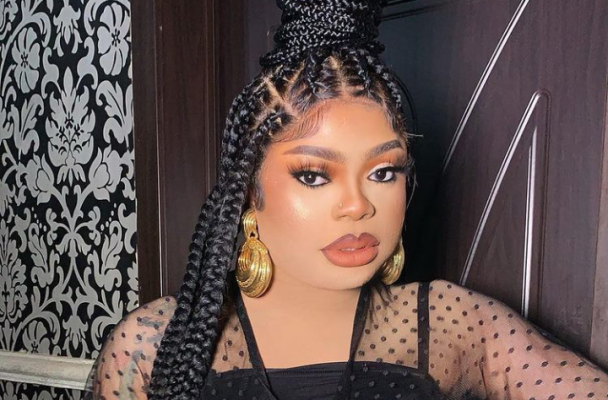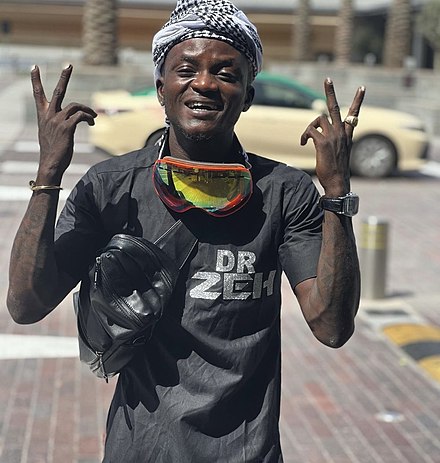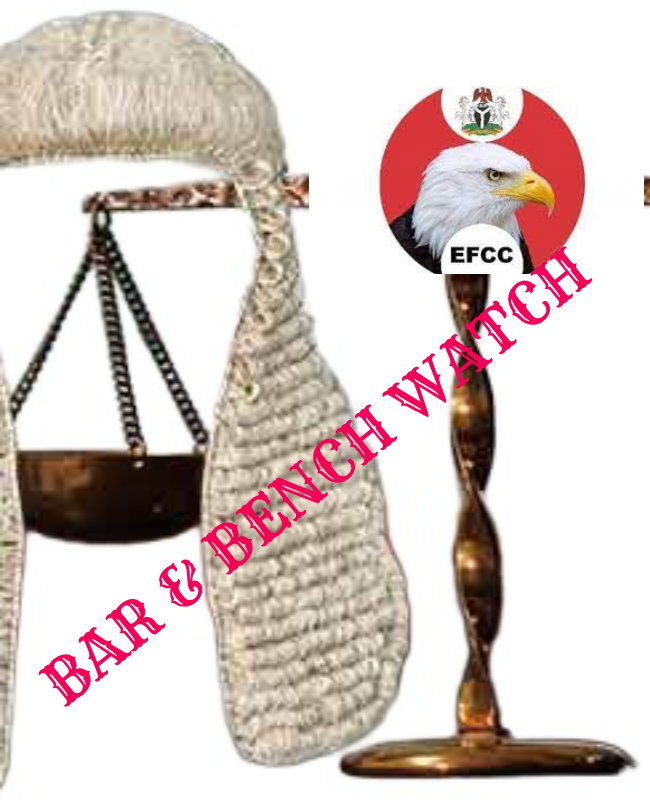The Economic and Financial Crimes Commission (EFCC) has arrested the controversial Nigerian cross-dresser, Idris Okuneye, popularly known as Bobrisky over currency mutilation and abuse of naira notes.
EFCC spokesperson, Dele Oyewale, made the disclosure on Thursday.
He said the controversial cross-dresser was arrested in Lagos on Wednesday night.

“He (Bobrisky) was arrested Wednesday night in Lagos. He has been detained at our Lagos Office and will be charged to court,” the anti-graft agency official said.
Bobrisky has been in the news for various controversial reasons including winning the “Best Dressed Female” Award at a movie premiere on March 25, 2024, a development that angered many entertainers.
Amongst others, a 1994-born Nigerian singer, rapper and songwriter, Habeeb Okikiola popularly known as Portable or Dr Zeh, on the social media, has called for the arrest of the cross-dresser by the police.
That had sparked hot altercation between Bobrisky and Portable with Nigerians debating the legality of cross-dressing in the country.

Reacting on various calls to arrest Bobrisky, the Force spokesman, Muyiwa Adejobi, said there is yet no provision in the law suggesting that crossdressers in Nigeria should be arrested.
“I have not read anywhere that cross-dressing is an offence in Nigeria,” he said on Channels Television’s Politics Today programme on April 2, 2024.
“Let us be reasonable, you cannot arrest somebody you want to prosecute without having credible evidence and as such, crossdressing is not yet a crime in Nigeria.
“Some of them that are into cross-dressing, the allegation is that they are into something else, that’s where the problem lies.
“We need enough proof that they are actually into ‘that’. All those offences are natural in Nigeria and punishable under our laws,” Adejobi stressed.
Relying on the explanation offered by the police, the EFCC went after Bobrisky and arrested him although not in connection with cross-dressing.
But it is not clear whether EFCC would not go beyond the offences cited in its investigation of Bobrisky.
BAR & BENCH WATCH reports that as far back as 2006, various offences that are committed under the cloak of cross-dressing had been an issue in Nigeria.
For instance, a bill to make provisions for the prohibition of relationship between persons of the same sex, celebration of marriage by them, and for other matters connected therewith, also known as the Same Sex (Prohibition) Act 2006, was a controversial draft bill that was first put before the both houses of the National Assembly by Justice Minister Bayo Ojo on January 18, 2006.
However, the bill was not passed during the first reading.
But on January 18, 2007 the bill was approved by the FEC and resent before the National Assembly.
It, however, received condemnation from human rights organizations for its restrictions on freedom of speech and organization, potentially placing Nigeria at odds with several international agreements to which the country is signatory.
Besides, it was also seen in Nigeria as being a last-ditch election-year effort of the Obasanjo administration to appeal to public sentiment, since the second reading of the bill was being pushed after the Senate’s defeat of a bill to amend the Constitution’s limit on the number of presidential terms.
As a result, the bill was not passed by either house before the general election that year.
Seven years later, another draft was passed into legislation by President Goodluck Jonathan as the Same Sex Marriage (Prohibition) Act 2013, despite international pressure and was dated January 7, 2014.
US Secretary of State, John Kerry said the United States is “deeply concerned” by a law that “dangerously restricts freedom of assembly, association, and expression for all Nigerians.”
Again, in 2022, a bill seeking to amend the same-sex Marriage Prohibition Act (2013) and also outlaw cross-dressing in Nigeria was introduced for first reading at the House of Representatives in April 2022, but was pronounced dead on arrival by many.
Referencing Section 4 of the same-sex Marriage Prohibition Act (2013), Honourable Muda Lawal who sponsored the bill, proposed that cross-dressing whether done privately or publicly, should be prohibited.
He also proposed a 6 months imprisonment or a fine of N500,000 for anyone found guilty.
This bill however, in December of the same year, failed to pass second reading at the House of Representatives.
The then Deputy Speaker of the House, Ahmed Wase, advised the sponsor, Muda Umar, to step it down as it does not capture the multi-cultural nature of the country.




